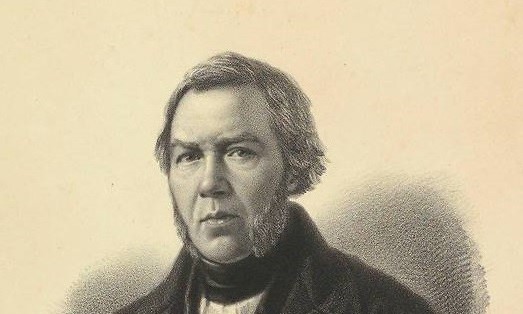He is one of the founders of Christian socialism: Who is Philippe Buchez?
He argued that contemporary civilization stems from Christianity and that the last stage of history will be completed with the application of the principles of equality and brotherhood advocated by Jesus to society.

(1796-1865) French social philosopher. Philippe Joseph Benjamin Buchez was born on March 31, 1796, in Matagne-la-Petite, in what is now Belgium, Ardenne Province, and died in Rodez on August 12, 1865. He studied medicine between 1817-1825. He contributed to the establishment of the Amis de la Verite ("Friends of Truth") lodge, which defended the monarchy in France in 1818, and the French Charbonneric in 1821. He published the journals L'Europeen ("European") in 1831, which supported the workers' movements, and L'Atelier ("Atölye") between 1840-1850. He advocated the establishment of workers' organizations in the 1840s. In 1848, at the head of the National Guard, he was among the first to enter the Tuileries Palace. He presided over the Constituent Assembly in May-June 1848.
Influenced by Saint-Simon's Nouveau Christianisme ("New Christianity") after the failure of the Charbonnerie movement, Buchez was among the Saint-Simonists. However, he broke with Saint-Simonism in 1829, criticizing the (pantheistic) doctrine that "God is everything and everything is God" advocated by Bazard and Enfantin.
Buchez, in his Introduction â la Science de Histoire ("Introduction to the Science of History") in 1833 and Histoire Parlamentaire de la Revolution Française ("Parliamentary History of the French Revolution"), published in 1834-1838, stated that the principles of the French Revolution did not conflict with Christianity. suggested. He argued that history is in continuous development through successive stages, that modern civilization stems from Christianity, and that the last stage of history will be completed with the application of the principles of equality and brotherhood advocated by Jesus to society. Recognizing the French Revolution as an advanced stage of Christian civilization, Buchez was against violence.
As a reform proposal, Buchez advocated that workers' organizations take control of the means of production and raw materials. His proposals for social reforms influenced the pioneers of the production cooperatives movement and Christian socialists.
